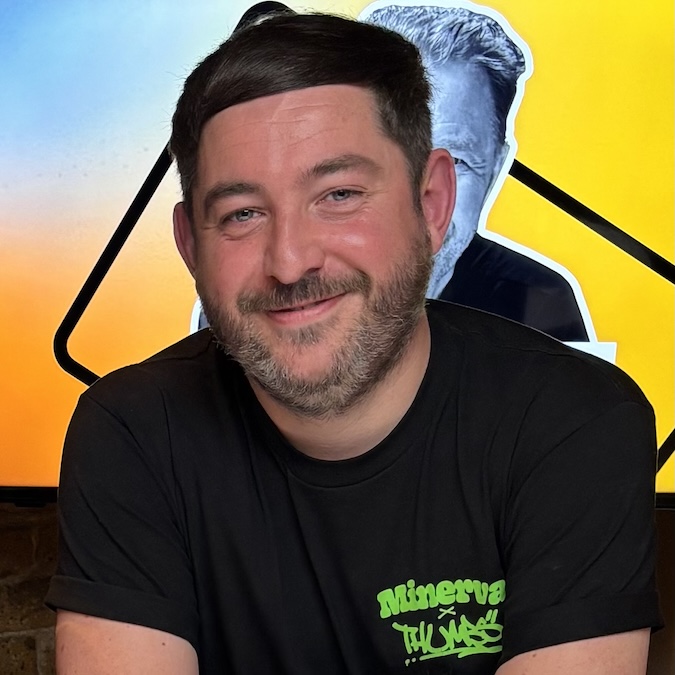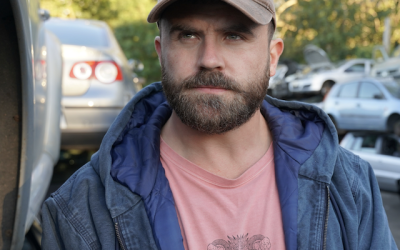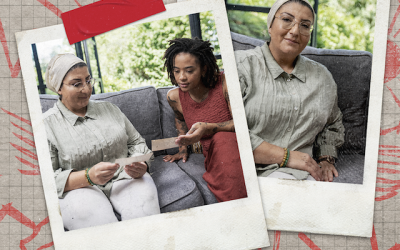By any measure, Tom Jenkins has earned his moment. After more than a decade steering Mashed, the anarchic, fan-fuelled animation channel that has become a fixture of gaming culture, he and his partners at Spud Gun Studios have finally taken full ownership. Channel 4’s decision to step away from the brand might have spelled the end. Instead, Jenkins saw an opening.
“We love Mashed. We love making the content. And we could see where it could go,” he told Justin Crosby on the TellyCast podcast. “I think in a lot of ways we’ve barely scratched its potential.”
The numbers back him up. In March alone, Mashed generated 45 million views and added 100,000 subscribers. Across YouTube, TikTok, Snapchat and Instagram, it commands almost seven million followers. Those figures explain why Spud Gun was quick to strike new brand deals with the likes of Xbox and Baldur’s Gate in the months since independence. Jenkins says the studio has already closed more commercial partnerships in four months than in the previous two years.
The studio’s method is simple but effective: animated comedy rooted in gaming culture, told with a flair for genre-bending. A Joe Rogan-coded gorilla interviewing video-game characters in The Donkey Kong Experience sits alongside darker dramas such as There’s Something About, a Sonic-inspired series that has driven audiences to Patreon and merchandise. Each release is designed to serve multiple functions including audience growth, mid-roll advertising, sponsorship integrations and fan engagement. “Every original we self-publish is serving two, three, four objectives for us as a company,” Jenkins says.
That pragmatism is matched by an ambition to diversify revenue. Ad revenue remains core, but Spud Gun has layered in branded content, cut-scene commissions for games, music distribution and membership models via Patreon. The latter, Jenkins notes, is less about cash and more about transparency. “Mashed has always been a faceless brand. Patreon allows us to pull back the curtain and be more authentic about the challenges we face, and to hear directly from the fans.”
Spud Gun’s attendance at Gamescom this summer reinforced the opportunities. The Cologne expo, now the world’s largest gaming event, connected the studio with developers seeking animated trailers, shorts and narrative content. Jenkins recalls discovering that Spud Gun had developed a reputation in Poland thanks to earlier work on The Altars. “We found out other developers were vouching for us,” he says, amused. “Apparently we’re big in Poland.”
But the strategy extends beyond games marketing. Earlier this year, the studio signed with Animation Plus, a US-based FAST channel focused on adult animation. Licensing deals of this kind extend Mashed beyond YouTube’s ecosystem and open up new revenue without the heavy lift of original commissions.
Spud Gun’s independence also coincided with success at the first TellyCast Digital Video Awards, where the studio took home four prizes. “It was vindication,” Jenkins says. “We’ve been perennial bridesmaids at awards ceremonies. To win, just as we’d taken control of Mashed, felt like recognition of the risk we were taking.”
Yet amid the enthusiasm, Jenkins is clear-eyed about looming challenges. He warns of a “slopocalypse” of AI-generated video, which he believes will flood platforms with low-quality content. In that environment, authenticity and audience trust become critical assets. “Mashed will never put out AI animation. What our audience values is that it’s made by people they respect. That relationship is too important to endanger.” AI tools may find a role in pre-production, he concedes, but never as a substitute for human craft.
The wider digital-first sector, Jenkins believes, is only just reaching the consciousness of the traditional TV industry. While broadcasters debate whether YouTube marks “the end of TV as we know it,” studios like his have been building sustainable models for a decade. “Audiences are gravitating towards creators,” he argues. “What you are going to see is more crossover, creators moving between live events, animation, games, and collaborations between companies with complementary skills.”
For now, Spud Gun is focused on growing its franchises, experimenting with new original IP untethered to third-party game characters, and deepening partnerships with brands and fans alike. It is, as Jenkins puts it, a new era.
“Gaming is bigger than film and TV combined,” he says. “We have built a large, loyal audience over ten years. Now we can take Mashed anywhere we want.”





